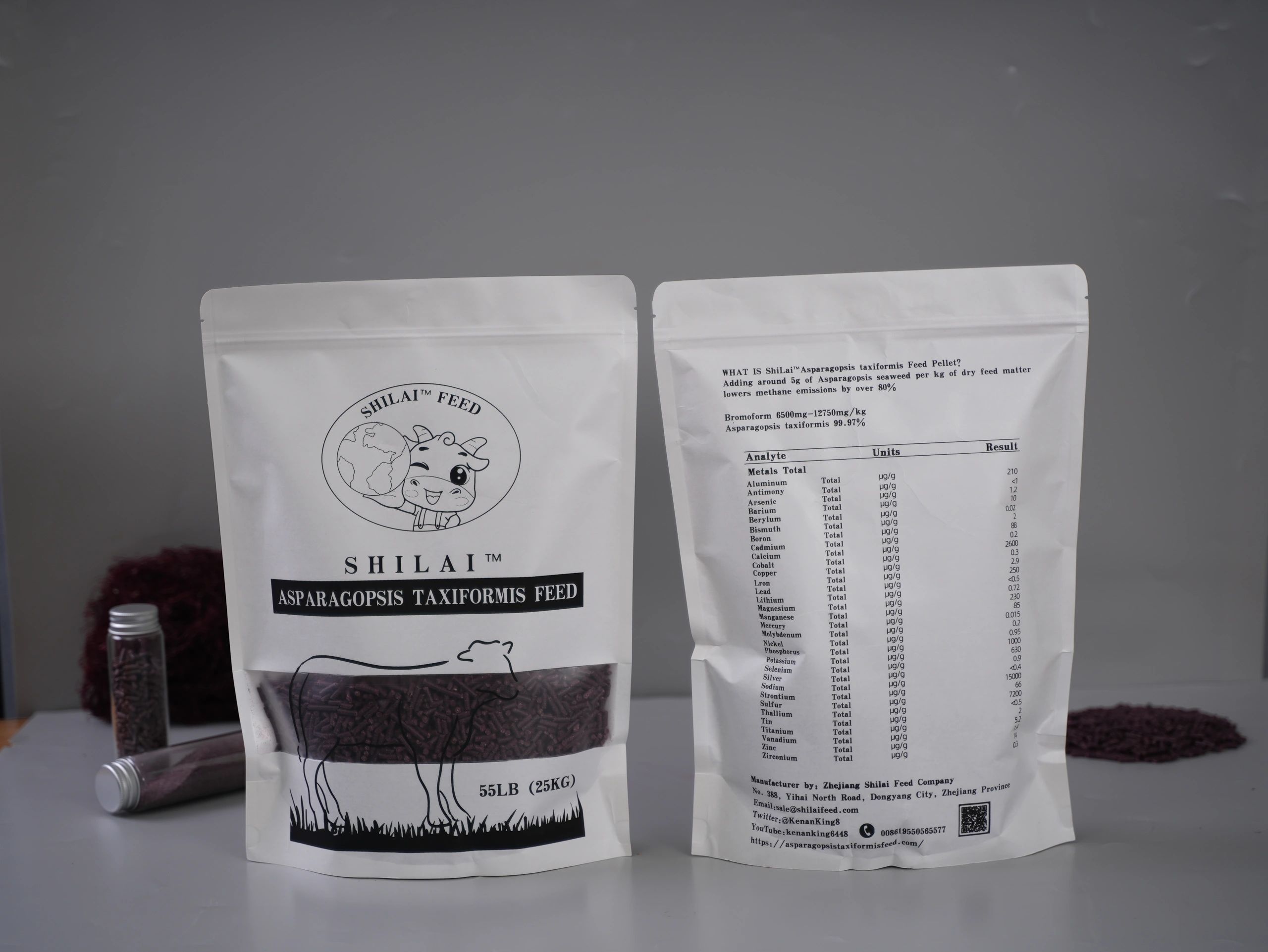
Worldwide agriculture accounts for a significant portion of greenhouse gases, with livestock as a chief contributor.
The climate impact of methane surpasses that of carbon dioxide on a per-molecule basis, underscoring the urgency to reduce it.
Interest is growing in Asparagopsis taxiformis, a red seaweed, for its potential to substantially cut enteric methane in ruminants.
This seaweed contains a compound that inhibits methane formation in the rumen, thereby lowering animals’ overall methane output.
Integrating Asparagopsis taxiformis into livestock feed has shown experimental success, suggesting an actionable strategy to shrink the carbon footprint of animal farming.
- The seaweed further supplies a set of advantageous outcomes that extend past methane mitigation.
- Elevated animal welfare and condition
- Potential to stimulate rural economies via seaweed value chains
Further investigation and trials are still needed, yet Asparagopsis taxiformis shows major promise as a sustainable emissions reducer.
Unlocking the Potential of Asparagopsis taxiformis Powder as a Feed Additive
Asparagopsis taxiformis powder or extract could transform animal nutrition and feed strategies across livestock sectors.
This marine plant contains bioactive and nutritional traits that can enhance livestock performance and productivity.
Using A. taxiformis powder in feed recipes has reduced methane in pilot work while also contributing necessary trace elements.
Ongoing research must address effective dosing strategies, production processes, and chronic safety/effectiveness considerations.
Asparagopsis taxiformis as a Catalyst for Sustainable Animal Farming
This red marine species is being highlighted for its capacity to reduce the ecological burden of routine livestock operations.
Incorporating the seaweed into diets can translate into concrete methane cuts and improved sustainability outcomes on farms.
Experiments have shown possible improvements in animal condition and performance when Asparagopsis is included in diets.
Further validation at scale and over time is required, yet the early science provides a compelling signal.
Methane Reduction Through Asparagopsis Feed Additive
Asparagopsis shows up as a viable intervention to significantly reduce methane produced in ruminant digestion.
Its methane-cutting impact is linked to compounds that interfere with the microbial pathways responsible for methane formation.
- Experimental studies have reported large percentage reductions in methane when Asparagopsis is included in diets.
- Using the seaweed in feed formulations is a sustainable pathway to cut enteric methane emissions.
- Producers and ranchers are beginning to consider piloting Asparagopsis in their feeding regimens.
Asparagopsis: A Seaweed Changing the Landscape of Livestock Farming
A new sustainability solution is emerging from marine resources: Asparagopsis taxiformis offers methane mitigation potential for livestock.
- Studies incorporating Asparagopsis have recorded meaningful methane decreases, signaling potential for environmental impact reduction.
- Such innovations provide an optimistic opportunity to align agricultural productivity with climate goals via emission reductions.
As climate strategies evolve, Asparagopsis emerges as a distinctive, implementable solution for cutting livestock methane.
Optimizing Methane-Cut Feed with Asparagopsis taxiformis
Efforts aim to refine processing techniques and dosing protocols to ensure A. taxiformis performs reliably as a feed additive.
The Science Behind Asparagopsis taxiformis's Methane-Lowering Effects
Scientists attribute the effect to Asparagopsis compounds that impair the methanogenesis process in the rumen.
The seaweed’s methane reduction is associated with bromoform compounds, which are under active investigation for mechanisms and risk assessment.
Incorporating Asparagopsis into Feed Recipes to Advance Sustainable Production
Its dual role as a nutrient source and methane inhibitor supports its use as a component in sustainable feed blends.
Feed inclusion can provide animals with extra amino acids and micronutrients, enhance gut function, and offer antimicrobial benefits.
A Sustainable Future Built on Asparagopsis taxiformis
This species is being explored as a marine intervention with the potential to reduce the environmental footprint of food production.
- Additionally, Asparagopsis contains vitamins and compounds that enrich feed nutritional content.
- Researchers and industry are collaboratively exploring how Asparagopsis can be used across food and aquaculture sectors.
Widespread incorporation of Asparagopsis into feeds could materially lower the environmental burden of livestock farming.
Asparagopsis Feed Additive: Benefits for Health and Productivity
Asparagopsis is increasingly recognized as a promising feed supplement that may improve both animal health and productivity.
Evidence points to improved digestive nutrient capture and feed efficiency with Asparagopsis, which may raise productivity.
Supplementation may confer antioxidant or immune benefits that bolster animal defenses and reduce susceptibility to illness.
As the call for sustainable production grows, Asparagopsis is well positioned to play an important role as validation and scale advance.
Asparagopsis-Enabled Feeds as a Step Toward Carbon Neutral Farming
Agriculture is under increasing demand to cut emissions, and Asparagopsis represents a practical route to reduce methane contributions.
- Scientists explain the effect as the algae’s compounds disrupting the microbial processes responsible for methane production in the rumen.
- Empirical studies provide promising evidence that diet inclusion of Asparagopsis can substantially lower methane emissions.
This innovative approach not only offers a greener feed option but also the potential to transform food production toward climate-resilient outcomes.